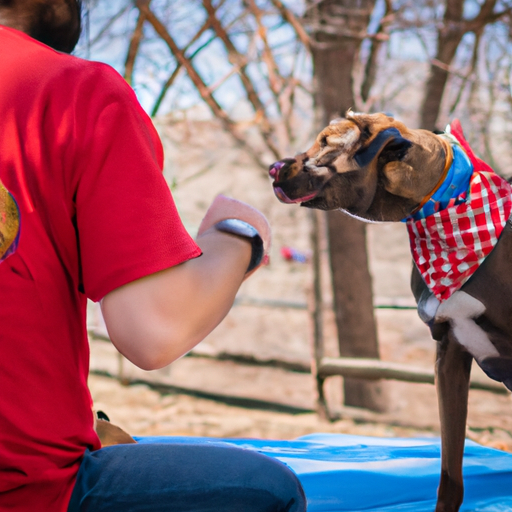Understanding the Root of the Problem
Firstly, it’s important for you as a caregiver to understand that your dog’s aggressive barking isn’t simply a nuisance, but a sign of underlying issues. Your furry friend may be feeling threatened, scared, or over-excited, which triggers this aggressive response. It’s crucial that you identify these triggers so you can address the situation appropriately.
- Fear: Your dog may perceive other dogs as threats, causing them to bark aggressively.
- Excitement: Some dogs bark excessively when they’re overly excited or want to play.
- Territory: Dogs are territorial creatures and may bark aggressively when they feel their territory is being invaded.
Effective Training Techniques
Training is an important part of curbing aggressive barking. Here are a few effective methods that you can use:
- Positive Reinforcement: Reward your dog when it behaves well. This encourages good behavior and discourages aggression.
- Command Training: Teach your dog commands like “Quiet” or “Enough”. Ensure you’re consistent with these commands and reward compliance.
- Expose Gradually: Gradually expose your dog to other dogs in a controlled environment. Start from a distance and slowly reduce the gap.
Professional Help
In some cases, your dog’s aggressive barking could indicate deeper behavioral issues. Thus, you might need to seek professional help.
| Services | Description |
|---|---|
| Dog Trainers | They can provide personalized training programs tailored to your dog’s needs. |
| Behaviorists | They can help identify the underlying causes of aggressive behavior and offer solutions. |
| Veterinarians | They can rule out any medical issues that may be causing the aggressive behavior. |
Preventive Measures
Preventing the aggressive barking before it happens is the best strategy. Here are some ways to achieve that:
- Regular Exercise: Regular physical activity can help burn off your dog’s excess energy, reducing its need to bark.
- Mental Stimulation: Providing toys or puzzles can keep your dog mentally engaged and less likely to bark aggressively.
- Socialization: Regularly exposing your dog to other dogs in a controlled and calm environment can help it become accustomed to their presence.
Staying Positive and Patient
Remember, change doesn’t happen overnight. Be patient and stay positive. Your dog senses your emotions and responds accordingly. If you’re calm and confident, your dog will likely mirror those feelings.
FAQs
Q: Why does my dog bark at other dogs on walks?
A: This could be due to fear, excitement, or territorial behavior.
Q: How can I get my dog to stop barking at other dogs?
A: Training, socialization, and positive reinforcement can help. In some cases, you may need to seek professional help.
Q: Is it normal for dogs to bark at other dogs?
A: While some barking is normal, excessive or aggressive barking can be a sign of behavioral issues.
Q: Can medical issues cause aggressive barking?
A: Yes, certain medical problems can lead to behavioral changes, including aggressive barking. If you’re uncertain, it’s best to consult a veterinarian.



